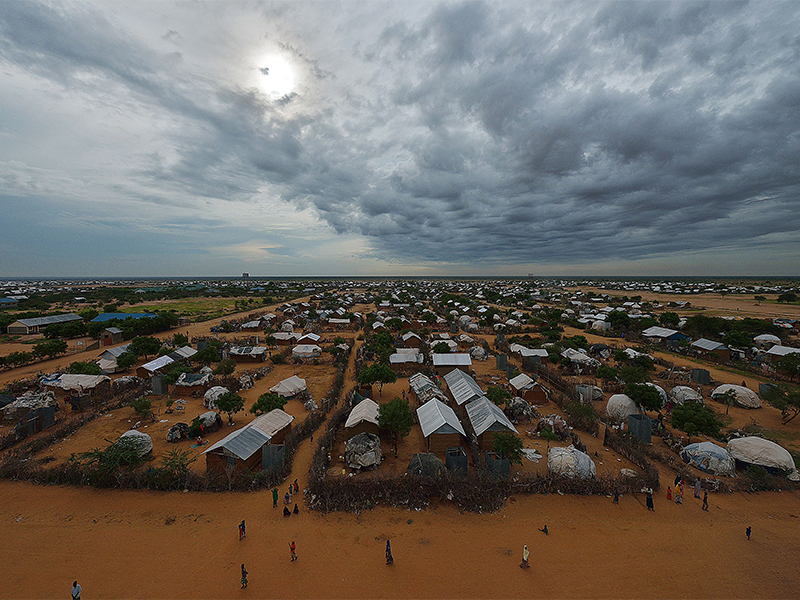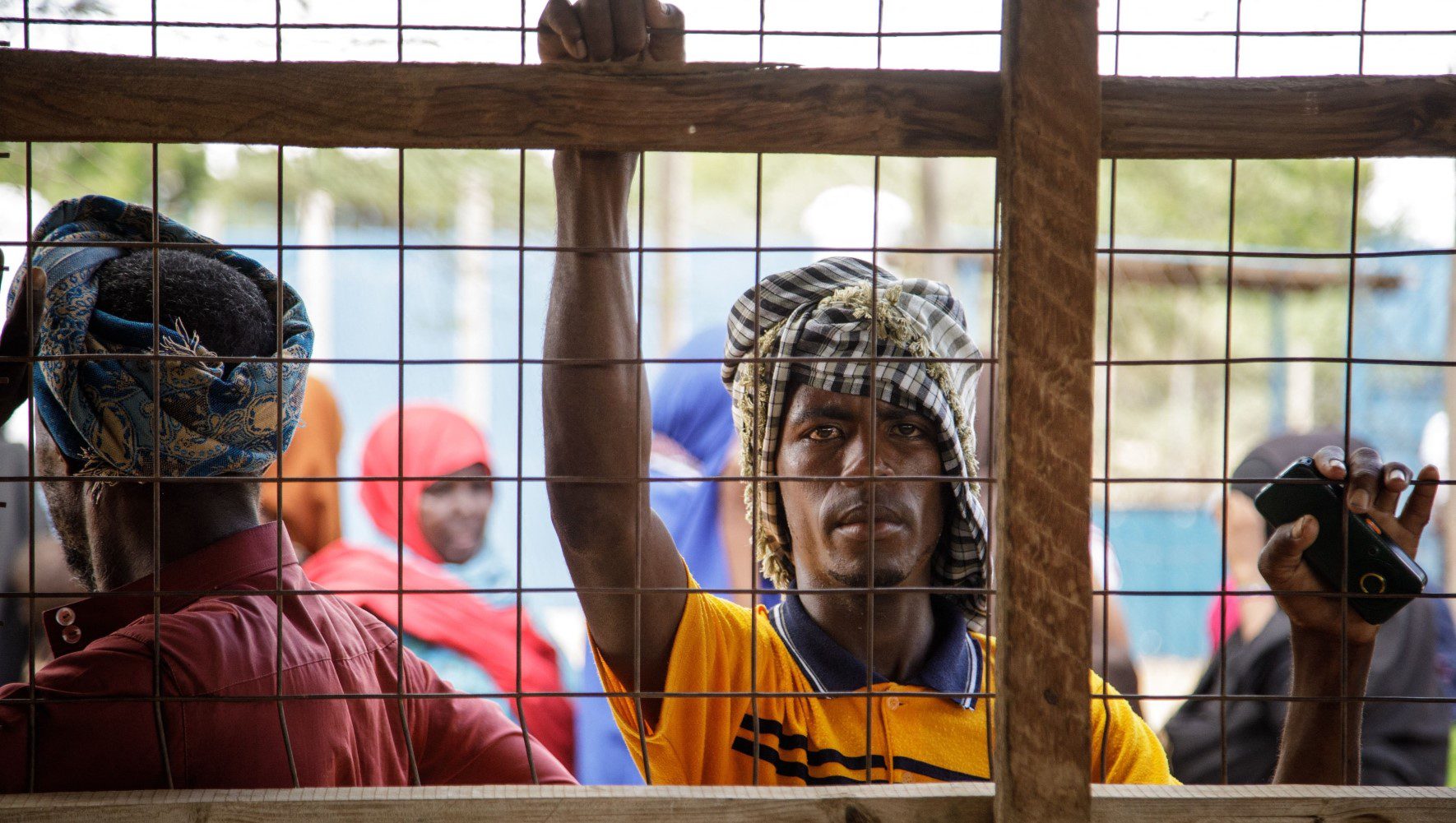Will Kenya Shutter the World's Largest Refugee Camp and Displace Thousands?
By Rachel Nusbaum, HIAS.org
May 12, 2016

An overview of the part of the eastern sector of the IFO-2 camp in the sprawling Dadaab refugee camp, north of the Kenyan capital Nairobi seen on April 28, 2015.
(TONY KARUMBA/AFP/Getty Images)
On Friday, Kenya announced that it would disband the country’s Department of Refugee Affairs and shut down its refugee camps, which currently host more than 600,000 refugees.
“The Government of Kenya has been forced by circumstances to reconsider the whole issue of hosting refugees and the process of repatriation,” said an official statement.
The government cited security concerns, as well as a lack of support from the international community, to explain the decision which, it acknowledges, “will have adverse effects on the lives of refugees.”
The announcement has raised significant concerns from local and international refugee protection organizations. “Kenya has long been one of the world's leaders in hosting refugees,” said HIAS President and CEO Mark Hetfield. “With more displaced persons today than at any time since World War II, Kenya's leadership is needed more than ever.”
The vast majority have fled violence, persecution and instability in Somalia and South Sudan. However others come from Ethiopia, the Democratic Republic of Congo, Rwanda and Burundi.
“It is urgent that Kenya continue to be a world leader. The international community must also reinvigorate its efforts to share responsibility for the protection and welfare of the 600,000 refugees hosted by Kenya,” Hetfield said.
While it initially announced plans to close two camps, on Wednesday the Kenyan Interior Ministry announced a timeline for closure for only one: Dadaab, the world's largest refugee camp, which it says will be closed by November of this year.
Dadaab is home to more than 344,000 refugees. If it were a city, it would be Kenya’s third largest. According to UNHCR, more than 140,000 of its inhabitants are children under 12.
It is also largely Somali. Many of the nearly 463,000 Somali refugees that UNHCR estimates now live in Kenya call Dadaab home. In another worrying turn, newly arrived refugees from Somalia will no longer receive 'prima facie' refugee status despite the ongoing instability in that nation.
“While Kenya struggles to balance national security issues and humanitarian goodwill, we are nevertheless greatly concerned that no refugee should be forced back to the situation that he or she fled. International law requires questions of personal safety be taken into account,” said HIAS Kenya Director Lucy Kiama.
In a joint statement, more than a dozen NGOs who currently assist refugees in Kenya expressed their ongoing commitment to “supporting the Government of Kenya in the search for long-term and sustainable solutions for refugees.”
“We therefore urge the Government to... reconsider its intention to close refugee camps in the country in line with its good record of upholding its obligations towards hosting refugees and asylum seekers,” the letter states.
HIAS continues monitoring and documenting the situation in Kenya, and has met frequently with both government and NGO representatives in the days since the announcement. “We’re still hoping to bring about a positive resolution that protects refugees,” said Kiama.



